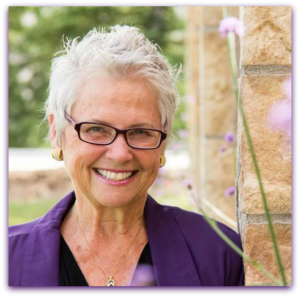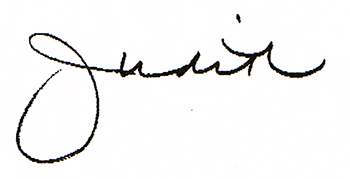Reading and Writing are joined at the hip. I’m often asked how do I get so much pumped out each week with blogs, podcasts, communications about ongoing events and experiences, the variety of books I work of with clients … and noodling ideas for my own books.

First, I read lots. I scan through five newspapers every morning–within 10 minutes of being up, I’m reading accompanied by my ever-present mug of hot tea. Items that catch my eye, I read in-depth. Then, I write a lot. And yes, I do watch TV and movies. I’m a member of a weekly movie club where two movies are watched before our gathering, then dissected over a two-hour time frame. All are factors in what I create and publish.
Below are nine of my personal tips:
- Read. I read lots: newspapers, magazines, fiction, and nonfiction. Publications outside of what I’m working on; writing that I didn’t create. Whether my goal is to be current with “what’s going on” to pleasure reading, I pay attention to word usage, structure and how others use language. I often ask myself, “Hmmm, could I use this method, these types of words better connect with my readers?” Your voice is essential—is it clear and concise? Or do you ramble or use words that don’t connect with your reader?
The more you read, your writing will improve. Stop, chew over what others write. What makes the words work?
- Write lots. It doesn’t matter if it’s a letter, blog, article, chapter, or gathering information. It’s writing. The more you write, the better you will get, I promise.
- Don’t avoid TV (or for some of you YouTube) and movie watching. I can’t tell you how many “ahas” I’ve pulled from a line from a dialogue between to characters; observing a scene within a show or movie that acts as a trigger to something I’m noodling on or hadn’t thought about. Good things can drop in unusual places and times. Keep an “idea notepad” or sticky notes by your side. When ideas drop in, capture them. Otherwise, they become like the wind: you feel it when it arrives … but then it subsides.
I’m a fan of Dr. Seuss and his book Oh, the Places You’ll Go! My take is: OH! Imagine the places you will see and hear  and feel and taste and touch. OH! Imagine how your writing will morph with mentors you never thought available to you.
and feel and taste and touch. OH! Imagine how your writing will morph with mentors you never thought available to you.
- Shorten it up. Those who communicate with me in person know that I’m not wordy—I tend to say it as I see/experience it. I’m blunt. One of my New York publishers said—your books are different. They are punchier than most of the “how-to” ones I work on. Yup, I like punchy, to the point.
- Get away from “info-dumping” … to write shorter and self-edit before I got it into the editor’s hands and eyes. Over 25 years ago, a movie debuted that launched Brad Pitt’s career. Based in Montana and filmed in an area that I knew well and lived in for four years, A River Runs through It was a must-see for me.
I know that river … I fished the river where the movie was actually filmed in countless times in the mid-80s; I was a master at hooking trout with mini-colored marshmallows (pink and yellow worked best) that I cleaned riverside and later fried for my family for a weekend breakfast or dinner, and I was a fan of Tom Skerritt.
Okay, I admit, I was also an avid watcher of the TV series Picket Fences that Skerritt starred in, so the hook was in play. I didn’t have the beauty and fantastic techniques of fly fishing revealed in the movie, but I got the job done and our bellies filled.
In one scene, Skerritt’s character sends his son (that’s a very young Pitt and a future reporter) back to his room to edit—to write “half as long.” Wise words for all of us.
And now that I wrote this, guess who is going to do a re-watch of this gorgeous, eye-candy movie? Hello, coming weekend!
6. Show, don’t tell; use the “senses” in your writing. What does it feel like; what does it smell like; what does it taste like; what does it sound like; what does it look like? Avoid being vague.
Don’t write, “It was awful.” Yes, it’s short, but it’s not enough.
How about juicing it up a bit: The skin on my arms prickled and the few hairs I had felt singed as their hateful words filled the air. It crackled with the escalating tension and the violation to my ears was more than I could take. The situation was beyond awful.
And note: this is for both fiction and nonfiction writing.
- If you are writing fiction, start with action. Yes, I know the set-up has lots of important goodies in it … but, if you are going to GRAB the reader, nothing does it better than sizzling action. You can always fill in as you move forward. Practice writing a tad “hotter” to create a grabber to draw the reader in.
- If you are writing nonfiction, start with a contrarian position and/or a story to set the stage. If you bombard the reader with a bunch of facts and numbers, it can easily deliver the deer in the highlights effect for the reader. Something you definitely don’t want to happen. The effect: the book quickly closes and is put aside.
- Make your writing readable. Unless you are writing for the academic or clinical world, this is not the time to demonstrate your PhD degree. I suggest you don’t exceed the sixth-grade level. Discover your readability index here.
Other sources can be found at Grammarly.com and via the Hemmingway app. Use them.
Boring writing closes books faster than poor editing. Is it time to kick up your writing and give it an energy injection? Are you up to it?
It’s time to step back and imagine the places your writing and words can go! Are you up to it?
 Judith Briles is a book publishing expert and coach. She empowers authors and works directly with authors who want to be seriously successful and has been writing about and conducting workshops on publishing since the ’80s. Judith is the author of 37 books including Author YOU: Creating and Building Your Author and Book Platforms, Snappy Sassy Salty: Wise Words for Authors and Writers, and How to Create a $1,000,000 Speech. Her personal memoir When God Says NO-Revealing the YES When Adversity and Loss Are Present is a #1 bestseller on Amazon. Collectively, her books have earned over 45 book awards. Judith speaks throughout the year at publishing conferences.
Judith Briles is a book publishing expert and coach. She empowers authors and works directly with authors who want to be seriously successful and has been writing about and conducting workshops on publishing since the ’80s. Judith is the author of 37 books including Author YOU: Creating and Building Your Author and Book Platforms, Snappy Sassy Salty: Wise Words for Authors and Writers, and How to Create a $1,000,000 Speech. Her personal memoir When God Says NO-Revealing the YES When Adversity and Loss Are Present is a #1 bestseller on Amazon. Collectively, her books have earned over 45 book awards. Judith speaks throughout the year at publishing conferences.
Throughout the year, she holds Judith Briles Book Unplugged experiences: Publishing, Speaking, Marketing, and Social Media. All are two-day intensive limited to a small group of authors who want to be seriously successful. Join Judith live for the “AuthorU-Your Guide to Book Publishing” podcast on the Toginet Radio Network HERE.
Follow @AuthorUYOUBooks and @MyBookShepherd on Twitter and do a “Like” at AuthorU, and join the Facebook group Book Publishing with The Book Shepherd. If you want to create a book that has no regrets, contact me.

